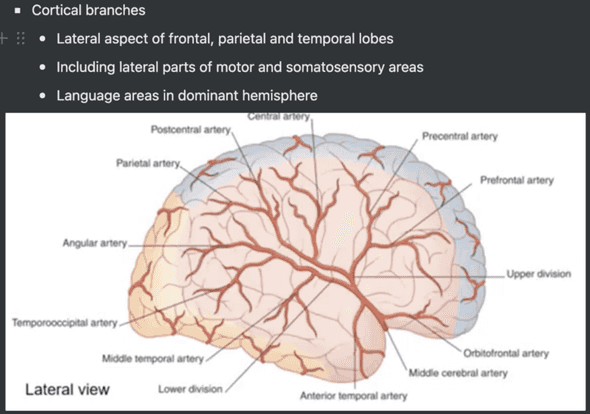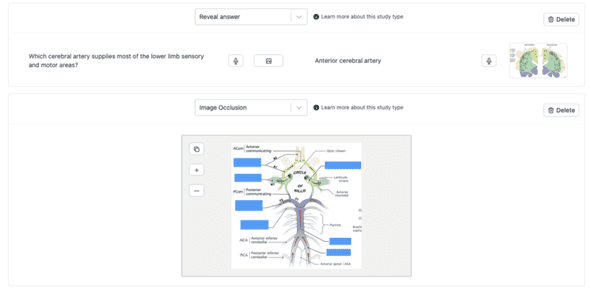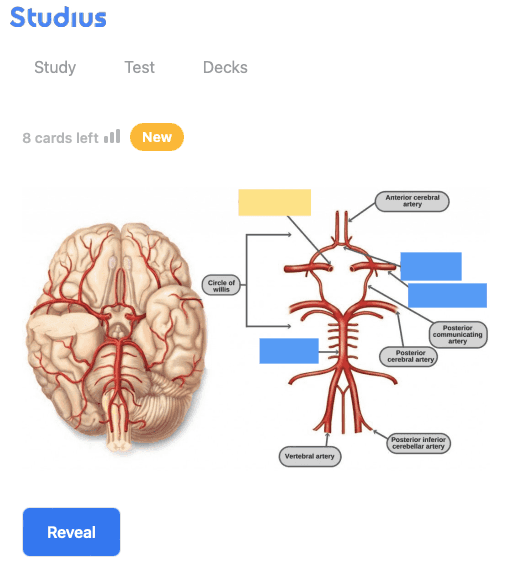Hirsh Agarwal • February 14th, 2022
Studying Medicine using Notion and Studius
My system to study efficiently without putting in too much effort. I’m not a person who loves to study. However, after doing my undergraduate degree in computer science, and now as a second year medical student I’ve learned a way to study that works pretty well for me. It might not be the best system to learn everything 100% perfectly — but I’m a big believer in maximizing my effort to output ratio, and this study system reflects that.
Building Blocks
My studying system has been specifically refined during medical school, but if I could go back and use it during my undergrad I definitely would. The principle is to develop a conceptual framework first, to provide an understanding of fundamentals. Then fill in the gaps with detail, getting all of the nitty gritty information that helps solidify the concepts. Finally commit everything to memory over time using spaced repetition. I use different tools for each step of this process.
Developing a Conceptual Framework
I consider this the first step to learning any concept regardless of the complexity. I frequently imagine myself explaining the concept to a patient, which is helpful as it forces a level of abstraction away from details. Usually this let me focus on distilling everything to a logical flow of information; I think about what the key points are and what causal relations exist between them.

For me this stage is usually underpinned by class lectures, as that’s where many of the concepts that we need to learn come from. While watching lectures I’m usually taking notes in Notion, which serves two purposes. Firstly they are useful as a guide to what content might be examined and in what context. They are also useful as reference material for some more esoteric information that can’t be easily answered by a single Google search.
Filling in Details
After lectures I start to write Studius cards using my Notion notes as a template. The process of writing cards is part of my study process itself as it requires me to think about all of the information again and fill out missing details. The goal of my flashcards is to extract out key information that might be hard to remember and try to develop memory anchors. As I go through, I start to look for little pieces of information that I don’t fully understand or don’t make sense from my notes alone. I look up things as I go along, and start to write cards based both on important details that I might not remember, and also some of the conceptual flows that I feel might help prompt my memory.

This process of choosing what information goes in cards can be a little bit tricky, but the key is to make sure each card is a self contained piece of information and you’ll be able to easily discern if you’ve answered correctly or not. I try to avoid putting multiple questions into a single card as, although it’s faster when creating cards, this makes it much harder to score them accurately while studying. I’ve found it’s better to have “too many” cards since the ones that are easy will pretty quickly be shown to you rarely with the spaced repetition algorithm.
Long Term Memory
The final step in the process is committing everything to long term memory. This comes predominantly from reviewing my Studius cards. As I go through I sometimes need to make adjustments and add things. The cards automatically get scheduled in order to optimize learning using spaced repetition — meaning I can just start studying and not worry about what things I’ve already studied or what I’m struggling the most with.

Using this system I’ve found it easy to quickly learn large amounts of information. Someday I’d love to be able to upload all of the medical knowledge I need directly to my brain 🧠 , but for now this is the closest thing I’ve found!
